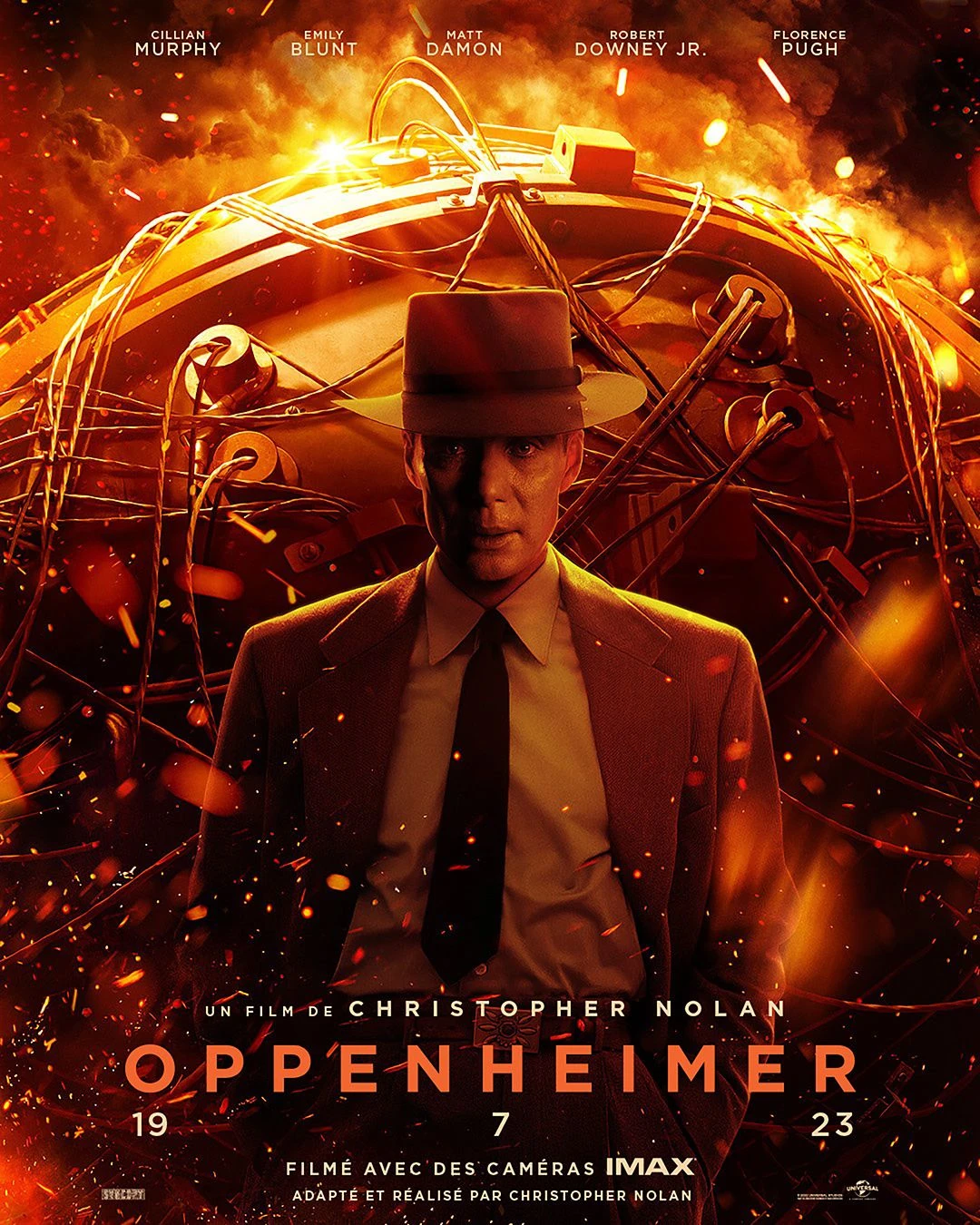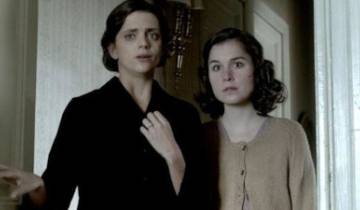
Oscars 2024.
A ceremony without conviction
Alexander Varderi
If the Oscars ceremony had lost luster and viewership since the pandemic, it would be expected that in such a crucial year for the industry, which were the two simultaneous strikes that paralyzed it for months and the threat of new technologies, especially evil Using artificial intelligence, the artistic community would have done more than its share to convey contemporary urgencies. But beyond host Jimmy Kimmel's shout-out to the behind-the-scenes workers who supported the strike, there was little echo of it, dissolving the rest of the night into bad jokes, predictable performances, and mostly unimaginative acceptance speeches.
Repeating a presentation that did not result in previous ceremonies because it prolonged the night too much, a winner from the past spoke, as expected, wonders about each nominee without really saying anything, to the point that Jennifer Lawrence did not even show a slight enthusiasm when praising, It seemed that out of obligation and without any convincing, to Lily Gladstone, the first native American to win a Golden Globe for best actress and be nominated for the Oscars in the same category. Only Jonathan Glacer, director of “The Zone of Interest”, Oscar for best foreign film, denouncing the violence in Gaza; and Mstyslav Chernov, the Ukrainian director of “20 Days in Mariupol”, winner of the best documentary, protesting the massacres due to the Russian occupation of his country, had a certain significance. Ryan Wosling, nominated for best supporting actor for “Barbie,” singing one of the nominated songs in a tasteful display of the kitsch typical of Mattel dolls, also managed to mobilize the audience for a few minutes, waking them up from their torpor and erasing the smile frozen on his lips for most of the night.
“Oppenheimer”, the favorite of critics and the public, won seven statuettes including best direction, best film, best actor (Cillian Murphy) and best supporting actor (Robert Downey Jr.), in a tour de force for Murphy playing the architect of the atomic bomb, so present in the world today as a tool of intimidation by autocrats like Putin and Kim Jong Un. Under the direction of Christopher Nolan, the process of design, construction and use of this weapon of mass destruction took on signs of imminent danger before and now, accurately capturing the compromises and interests of the power groups to obtain control of the nuclear device that, Once its effect was proven, it left the hands of its inventor; Although Oppenheimer was blamed, judged and ostracized by those who had pressured him to continue his experiments. It is interesting here to highlight that the North American legal machinery was then very effective and acted with great diligence; quite the opposite of now, when it has lost all credibility and is manipulated, from the courts to the Supreme Court, by the Republican party.
The use of color and black and white to separate the part of the film that concerns the biography of the scientist and his assistants - most of them later recipients of the Nobel Prize - from that which focuses on the development of the bomb and its explosion, It allowed the viewer to demarcate the personal from the transcendental. This, through a scenography of great plasticity that extracted beauty from the horror, making it much more acute. Murphy's intense performance, portraying Oppenheimer's life from his student years to those after his “triumph,” full of regrets and regrets, kept the audience's attention and served as a common thread throughout the fragmented narrative. Here the scientific failures and achievements, the complexity of his relationship with the couples who accompanied him on the journey and the harassment of anti-communist organizations during the time of McCarthyism, took on epic relief, making the film a great symphony about resilience and the genius.
Another film where these qualities stood out was “Maestro” by Bradley Cooper, and although it was nominated in several categories, it did not win any statuettes. This may be because as a whole the film is perceived as forced and exaggerated in many of the scenes, especially those that concern the protagonist's family life and those where he appears conducting the orchestra. Based on his daughter's memoir, the film highlighted the personal within the home circle over the professional, leaving aside his important political activism and giving little space to being gay, which Leonard Bernstein embraced despite jealousy and recriminations. of your loved ones.

Bradley Cooper, who also co-wrote the script and acted in the lead role, receiving a nomination for best actor, stuck too closely to the book, leaving aside more exhaustive biographies that portray the complexity of the character, which would have allowed him to create a profile. much more multidimensional. The excess of mannerisms at times caricatured the artist's histrionics, subtracting his authority, although he captured Bernstein's drama and his struggle to please those around him, but without losing his essential self. The use, as in “Oppenheimer”, of black and white and color to separate periods and spaces, lightened the pace of the story, accompanying it with agile camera work that privileged wide angles and overhead shots, in the scenes where He emphasized the multifaceted nature of the artist and his importance within both classical and popular music.
“Poor Things” by Yorgos Lanthimos, nominated for best director, was another of the award-winning films, especially in terms of production and visual display, obtaining statuettes for makeup and hair, costume design and production design. This story with Gothic overtones inspired by the Frankenstein films centers on the story of Baxter (Willem Dafoe), a scientist who dissects corpses to reconstruct them until creating Bella (Emma Stone, Oscar for best actress), who will display her seductive arts enslaving his creator and destroying his prospective lovers.
As an allegory of the breaking up of bodies, the diegesis is presented like a quilt built with many different pieces that make sense when perceived together. This gives the film its sense of unreality and fantasy, while highlighting the bifurcation of personalities in the characters, which make sense as this work of sewing and reconstruction is carried out. Referring to Bella, the director states: “She never knew what shame is, so she is totally free to offer her mind, her thoughts, her opinions, her body, whatever. She is about a human being who has a chance in the world, someone who has not been molded in a very specific way to be perceived in a particular way.”
This mode of perception had its most accurate expression in this edition of the Oscars with the film “Anatomie d'une chute”, nominated for best film despite not being a Hollywood product or an American film. Directed by French director Justine Triet, it won the Palme d'Or at Cannes and Oscar nominations for best film, direction and actress (Sandra Hüller), winning in the best original screenplay category. The trial of a successful writer living with her son in a house located in a deserted area of the mountains, accused of murdering her husband by throwing him from an attic window, focuses the action and displays the sexism of those who seek to accuse her.
In Triet's direction, the author emerges as someone whose life circumstantially makes her suspicious, but nothing about her is conclusive. She drinks but not excessively, she is distant but not cruel, she is bisexual but her sexuality is not aggressive as the prosecutor wants to see it, she loves her son but does not overprotect him; And deep down she loved her husband but his depressive personality, his fears and frustrations, especially having a more successful partner, made coexistence difficult. Something that is shown in the opening scene when a journalist comes to interview her at her house and he, while working in the attic, plays the music very loud to hinder the development of the conversation between them.

The use of the subjective camera, the large close-ups and the fragmentary montage created great empathy between the writer and the viewer, freeing the action from the melodramatic tone and bringing it closer to films of the genre such as “The Crucible” (1996) by Nicholas Hynter , “Doubt” (2008) by John Patrick Shanley and “Bella” (2013) by Amma Asante. The circumlocutions of the script, drawing paradoxes and double meanings to increase the ambiguity of the character and establish doubt regarding her guilt, kept the viewer's attention and left the ending open for everyone to fill in the blanks with their own conclusions.
Another film full of enigmas was “American Fiction”, nominated for best film and winning the Oscar for best adapted screenplay. The decision of an African-American author and university professor to write a novel with all the clichés of the ghetto, in order to show the existing racism, becomes the bestseller with which he will be able to finance his mother's residence and help less fortunate relatives. All this while maintaining a critical attitude towards the manipulation of the black population, by those who seek to reduce it to a group of poorly educated individuals. and prone to drugs and violence.
This debut feature by Cord Jefferson, who has distinguished himself by directing television series, brought the genre's fast, staggered style to the big screen, creating different planes of meaning and creating a fiction on the theme of cinema within cinema, in order to give it a irony to the argument. The panoramic views of the landscape framing the doubts and contradictions of the writer, perceptively played by Jeffrey Wright, nominated for best actor, and lighting capable of favoring warm colors, gave a lyricism to the diegesis that contrasted with the violence against the African-American population, present in North American society.
The final scene, written and rewritten, filmed and refilmed in and out of the action, managed to summarize the conflict intrinsic to interracial relationships, present even when the characters belonged to the educated class. Here the color of the skin ended up determining the fate of the protagonist, while revealing the hypocrisy of the white population, in their attempt to please or be understanding of the struggles of others. In the director's words: “In the film you have, on the one hand, an industry that equalizes the lives of black people, portraying them as a monolithic group with a similar lifestyle and set of stories. On the other hand, we find the juxtaposition with this complex and nuanced black family that shows the diversity that exists within the community.”
“Past Lives,” the first film by Korean-Canadian director Celine Song, nominated for best film and original screenplay, returns to the fantasy of impossible love stories, in the style of “In the Mood for Love” (2000) by Wong Kar-wai, weaving an evocative fresco of present and past images in the characters' lives. Here two young people who shared their childhood in Korea reconnect on social networks 20 years later. She, as a successful writer married to a prominent American author living in New York, and he studying engineering in Seoul after finishing his military service.
The stories from what has been experienced intersect with the current moment to develop a fluid story where the protagonists settle as if in a parenthesis between their previous life and their current one. This is enhanced by a soundtrack and scenery that highlight the two cultures, intersecting them. The experience of immigration and adjustment to its new realities contrast with his desire for permanence and preference for what he knows. And when they finally meet in New York, those years shared in childhood return with all their intensity, condensing through the experiences of adult life. In this way, the viewer is made to reflect on his own affections and how they have marked him throughout his existence, giving us the precious cinematic moment, which with all its ups and downs, this year's Oscars ceremony has once again put on the table. further.
Trailer Oscars 2024


